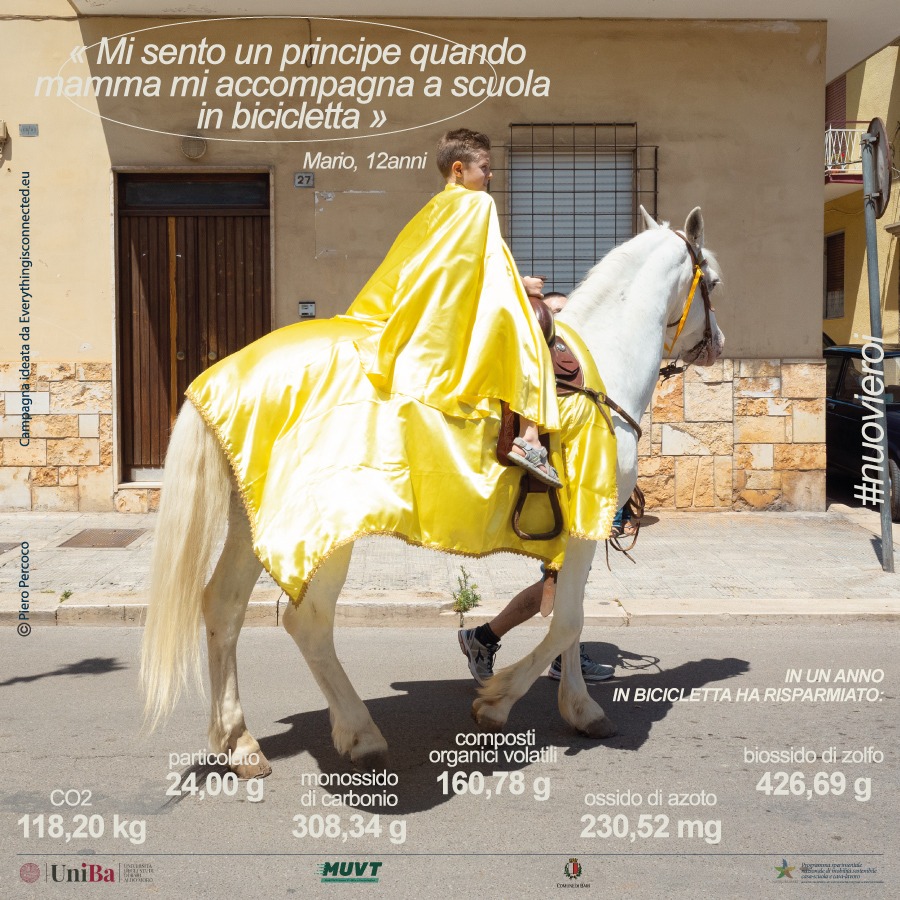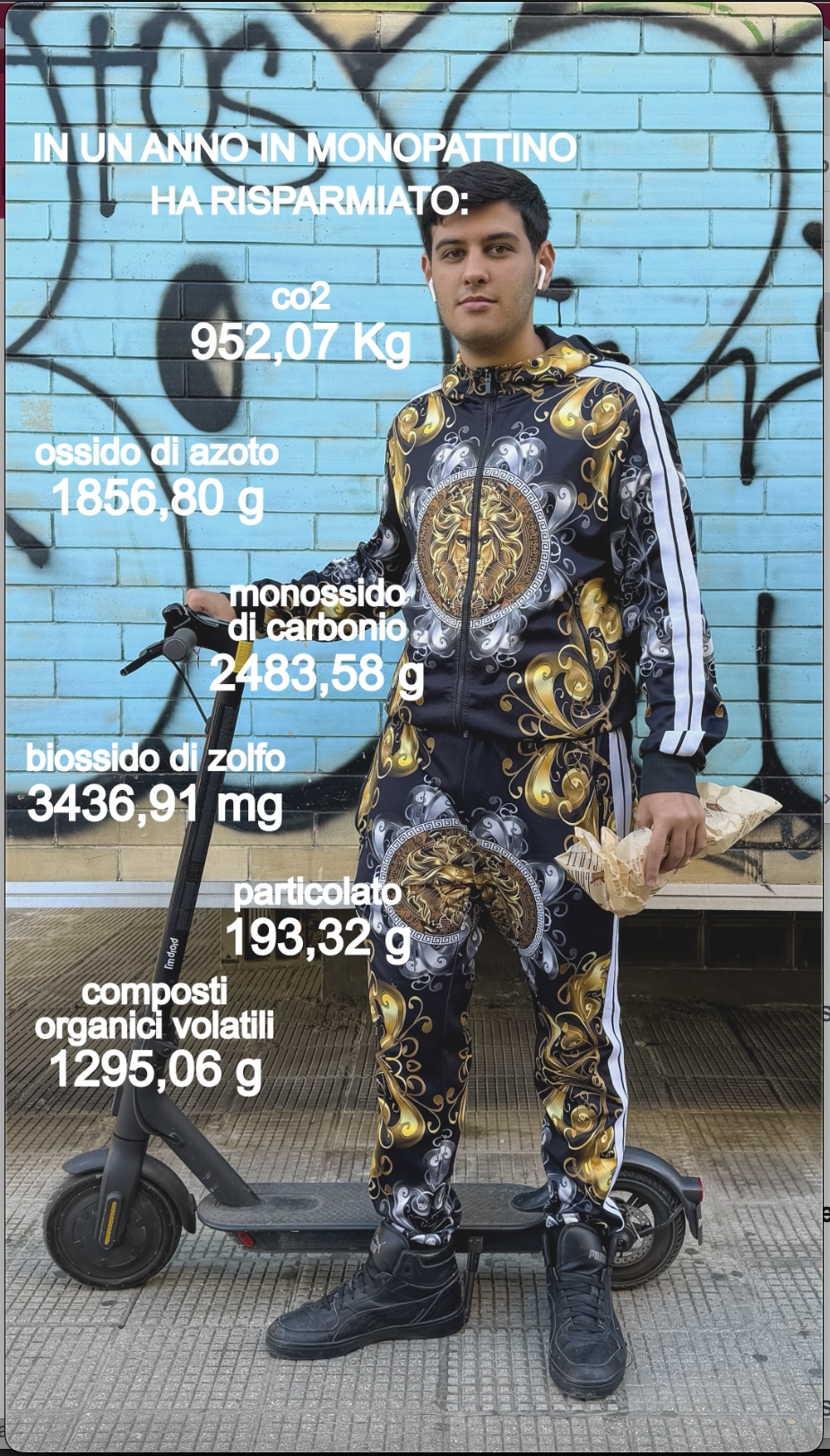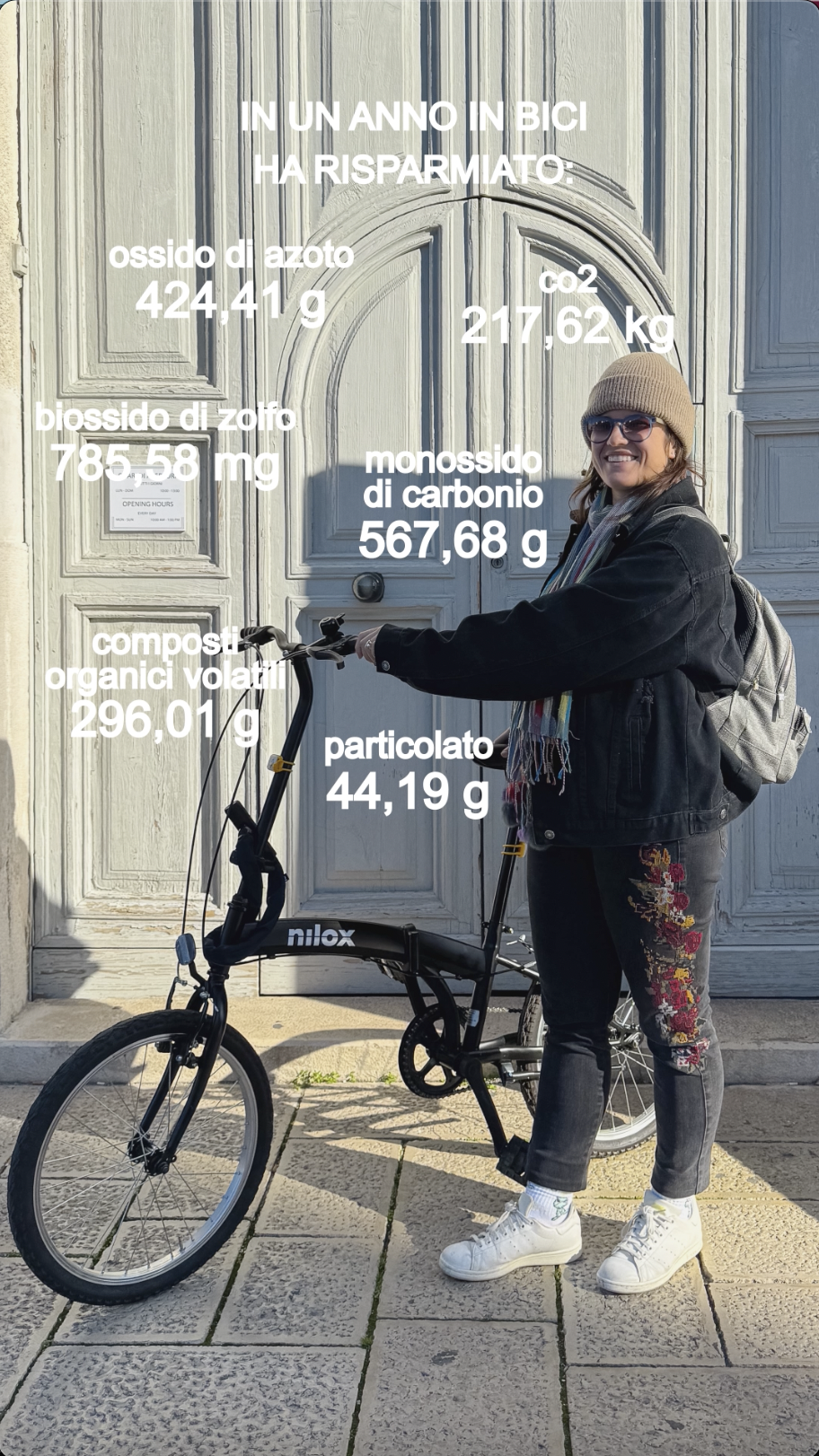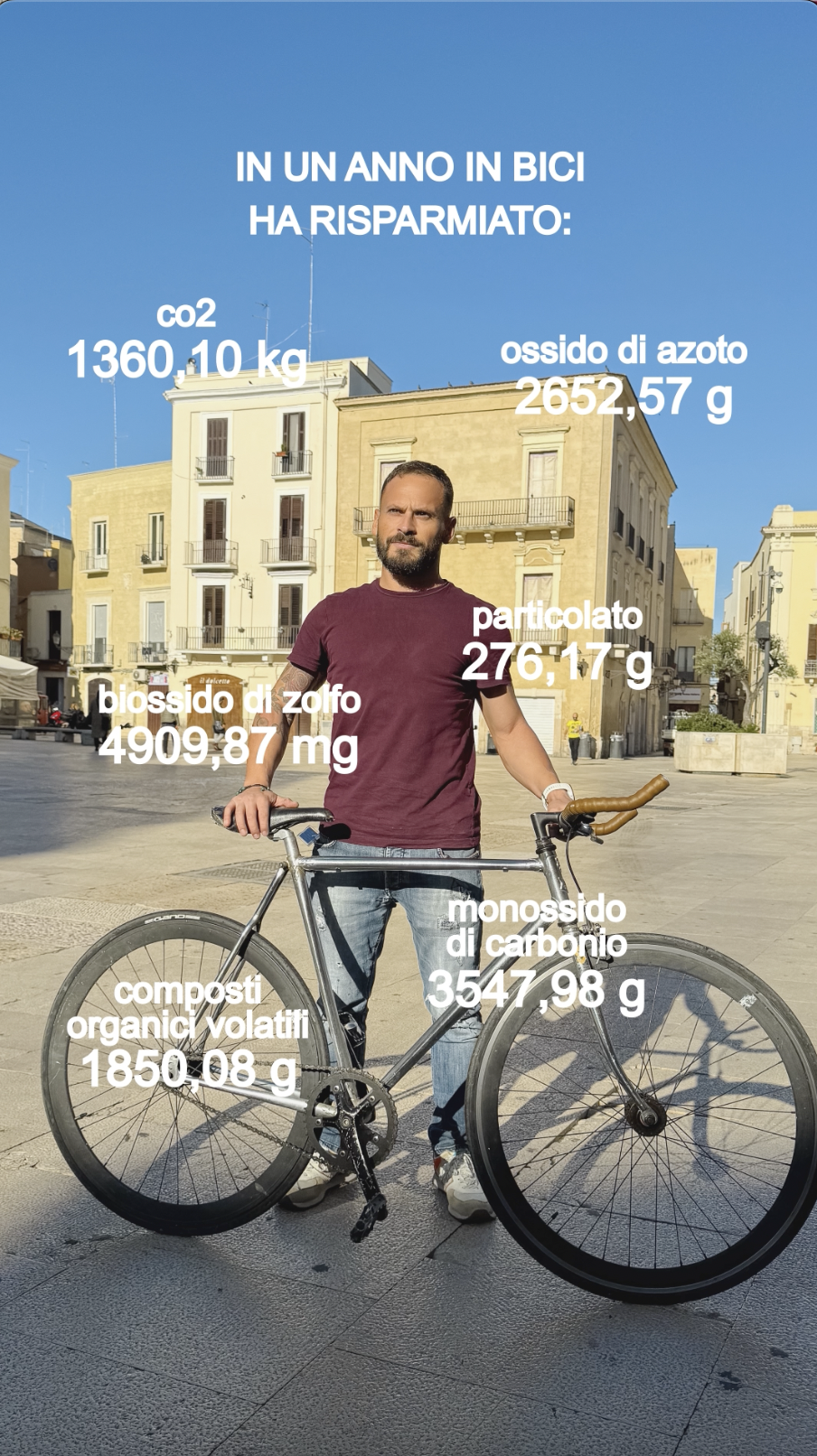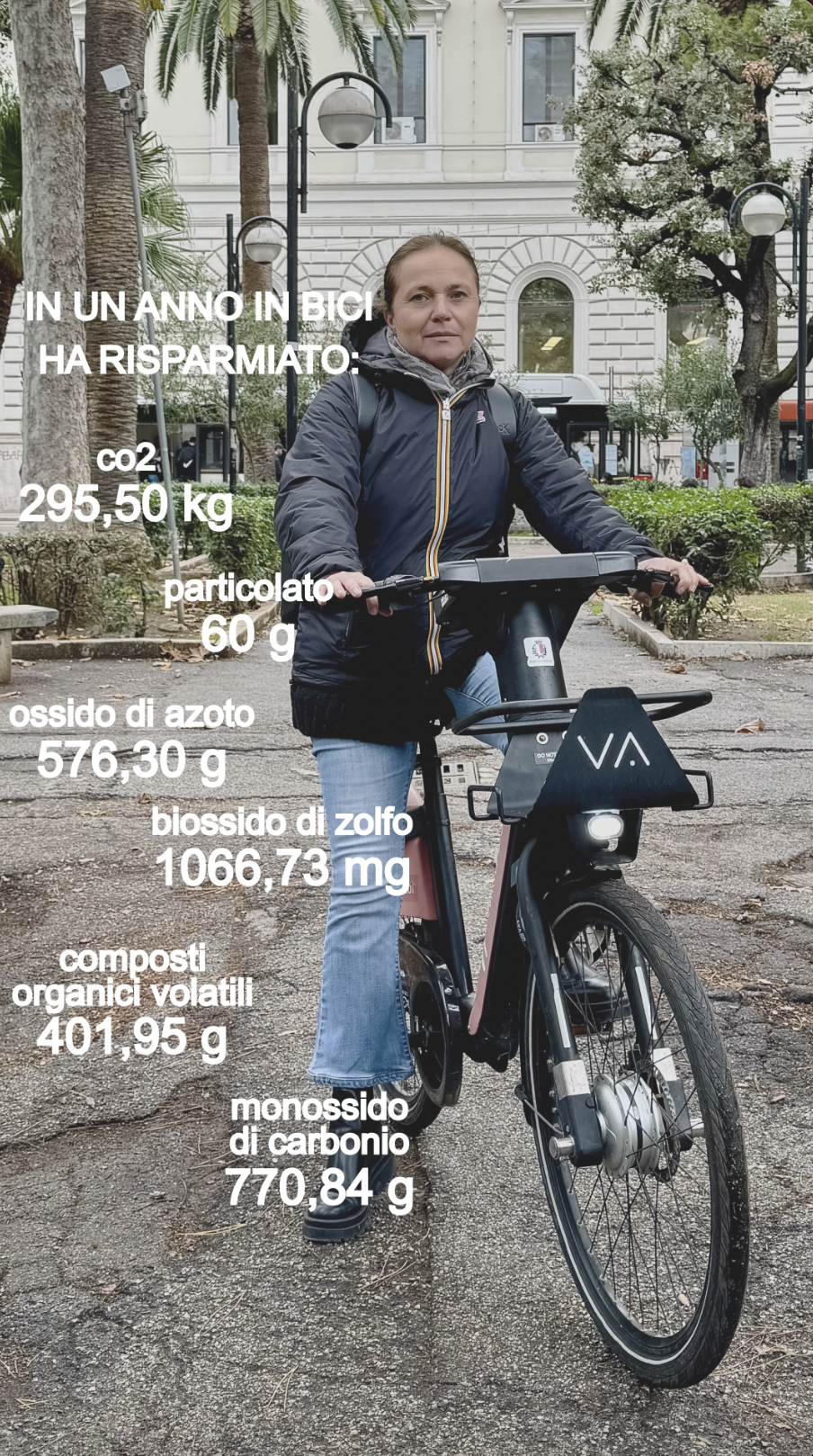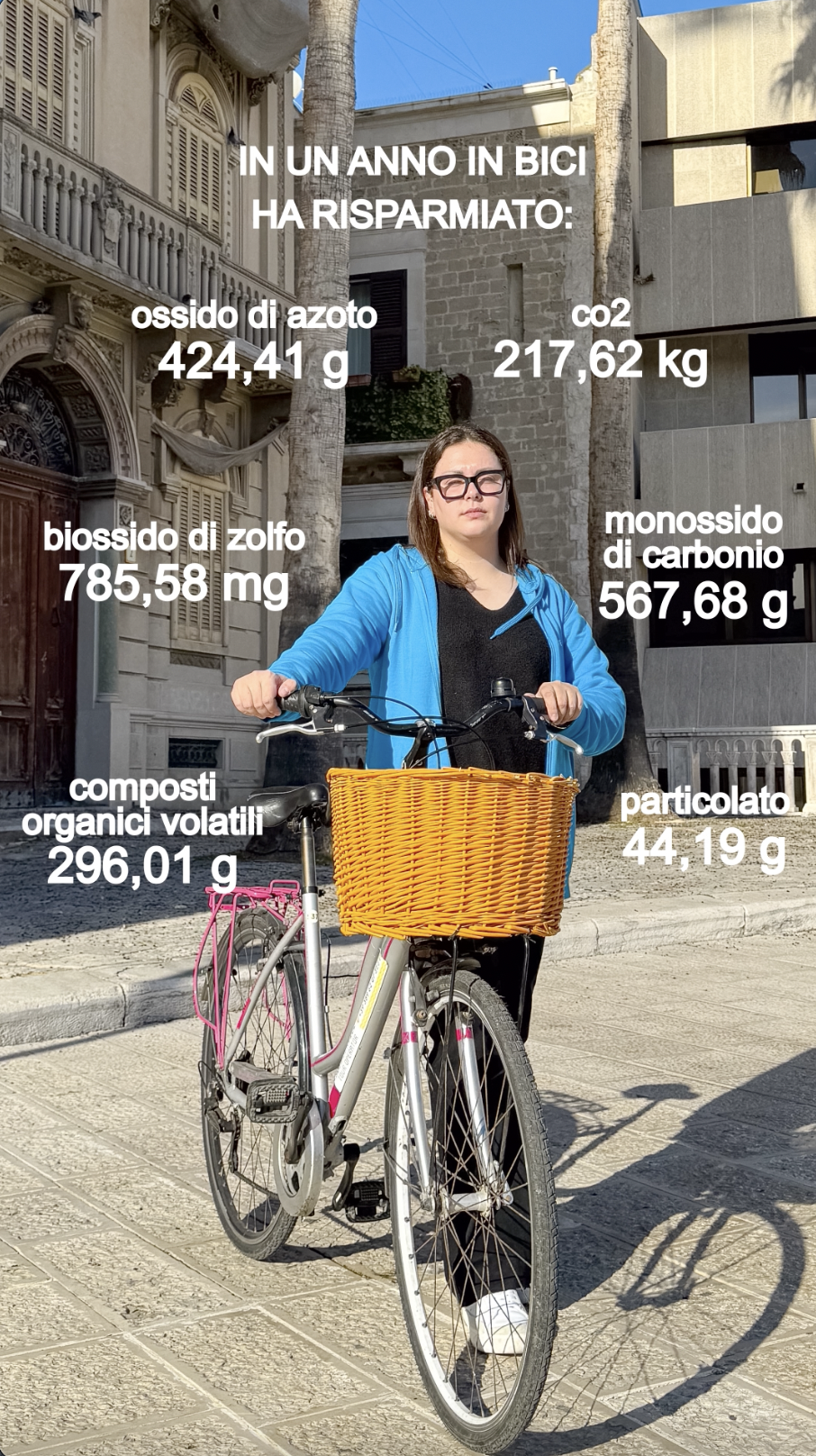Reconnecting with nature
HERO-METER
{Empty}
The HERO-METER represents an innovative, trans-disciplinary tool that measures the environmental impact of mobility, transforming individual choices into a collective action for air quality and ecosystem regeneration.
The project demonstrates that sustainable mobility is not just a personal choice, but an opportunity to rethink our impact on nature, human health and liveable cities.
The HERO-METER is a replicable tool able to transform data and awareness into social change.
The project demonstrates that sustainable mobility is not just a personal choice, but an opportunity to rethink our impact on nature, human health and liveable cities.
The HERO-METER is a replicable tool able to transform data and awareness into social change.
Italy
Local
Bari
Mainly urban
It refers to other types of transformations (soft investment)
Yes
2024-02-01
No
No
No
As a representative of an organisation
The HERO-METER is an innovative tool that quantifies and promotes the positive impact of sustainable mobility on air quality and ecosystem regeneration. By leveraging scientific data and coefficients from the European Environment Agency, it accurately calculates the reduction of harmful emissions, including CO₂, PM10, NOx, SO₂, CO, and NMVOC, resulting from the use of bicycles, scooters, and walking. This data-driven approach empowers individuals, policymakers, and urban planners to make informed decisions that contribute to cleaner air and healthier environments. The HERO-METER exemplifies sustainability by transforming abstract environmental benefits into tangible, measurable outcomes, fostering a cultural shift toward greener mobility choices. As a scalable and adaptable solution, it serves as a model for European cities aiming to reconnect with nature through improved air quality, demonstrating how technology can drive meaningful change in urban and natural ecosystems.
air pollution
sustainable mobility
collective intelligence
agents of change
urban regeneration
The HERO-METER is an innovative tool that quantifies and promotes the environmental benefits of sustainable mobility, directly supporting the transition to cleaner and healthier urban spaces. By leveraging scientific data from the European Environment Agency, it calculates the reduction of harmful emissions—including CO₂, PM10, NOx, SO₂, CO, and NMVOC—achieved through walking, cycling, and other green mobility choices. The project embodies the sustainability principle by providing concrete, data-driven insights that encourage the adoption of low-impact transport solutions, fostering a measurable improvement in air quality and ecosystem health. It also aligns with aesthetics by contributing to more livable, breathable, and harmonious urban environments, where cleaner air enhances both human well-being and natural ecosystems. Finally, the HERO-METER champions inclusion by making air quality data accessible and engaging to all, empowering citizens and collective action, policymakers, and urban designers to participate in shaping greener cities. As a scalable and adaptable tool, it exemplifies how technology and design can reconnect people with nature, offering a replicable model for European cities striving for a more sustainable, beautiful, and inclusive future.
The HERO-METER enhances the quality of urban life by transforming air quality data into a visually engaging and intuitive experience, making the often-invisible impact of sustainable mobility, tangible. Its user-friendly design and the public awareness campaign launched in Italy, translates complex environmental data into clear, interactive insights, empowering individual actions and communities to see the direct benefits of their sustainable choices. By integrating technology with cultural awareness, the HERO-METER focuses on what we think should be considered NEW HEROES, such as people that directly contribute to fostering a deeper connection with their environment, inspiring a collective commitment to cleaner and healthier air and cities. The tool’s ability to visualize the impact that sustainable mobility can have on the air quality for all, it's a tangible contribution to the natural ecosystems. The public awareness campaign developed for this, elevates its aesthetic dimension, as it encourages the creation of more breathable, vibrant public spaces, made with these NEW HEROES. As an exemplary project, it demonstrates how design, data, and art can converge to shape a new urban narrative—one that values sustainability not only as an ecological necessity but as a fundamental aspect of beauty and well-being in everyday life.
The HERO-METER is designed as an inclusive tool that makes air quality data accessible and actionable for all, regardless of background, education, or resources. By providing clear, science-based insights into the environmental benefits of sustainable mobility, it empowers individuals, communities, and policymakers to make informed choices that improve urban air quality and well-being. Its user-friendly interface ensures that people of all ages and abilities can engage with the data, fostering a sense of collective responsibility for cleaner cities. Moreover, the HERO-METER promotes affordability and accessibility by emphasizing active and low-cost transport solutions—such as walking and cycling—that are available to everyone, reducing social disparities in urban mobility. As a digital tool, it can be easily integrated into participatory governance models, enabling cities to involve citizens in decision-making processes and co-create policies that reflect their needs. By democratizing environmental data and encouraging widespread engagement, the HERO-METER exemplifies how inclusive design and technology can drive systemic change, reconnecting people with nature and shaping healthier, more equitable urban environments.
The HERO-METER actively engages citizens by making them visible protagonists in the transition toward cleaner air and more sustainable cities. As part of the ‘New Heroes’ public awareness campaign, individuals using sustainable mobility—such as walking, cycling, or riding scooters—were interviewed and featured in videos showcasing their personal contributions to air quality improvement. By displaying the exact amount of CO₂ and other pollutants they helped reduce, the campaign empowered participants with a sense of agency and recognition, reinforcing the idea that everyday choices have a tangible environmental impact. This participatory approach encouraged broader community engagement, inspiring others to adopt sustainable mobility and fostering a collective commitment to air quality. The involvement of civil society was key to amplifying the project’s reach, as the campaign sparked public dialogue, strengthened local environmental networks, and provided policymakers with citizen-driven evidence to support greener urban policies. By shifting the narrative around sustainable mobility from obligation to empowerment, the HERO-METER and ‘New Heroes’ campaign exemplify how inclusive storytelling and data can drive cultural and behavioral change in urban environments.
The HERO-METER project was developed through a multi-level stakeholder collaboration, ensuring broad engagement and impact. At the local level, the Municipality of Bari, along with Bari University and environmental organization, played a key role in supporting the public awareness campaign ‘New Heroes’, amplifying its reach and fostering a culture of sustainable mobility. Local citizens were directly involved as protagonists, as their real-life contributions to reducing emissions were highlighted through interviews and video storytelling shared on social media, making the benefits of sustainable transport both personal and relatable.
At the European level, the project presents a scalable model for cities across the EU, aligning with the Green Deal’s objectives and fostering cross-border knowledge exchange. This multi-stakeholder engagement has strengthened the project’s credibility, maximized its impact, and demonstrated how local initiatives can serve as replicable blueprints for a broader European transition toward cleaner, more sustainable urban environments.
At the European level, the project presents a scalable model for cities across the EU, aligning with the Green Deal’s objectives and fostering cross-border knowledge exchange. This multi-stakeholder engagement has strengthened the project’s credibility, maximized its impact, and demonstrated how local initiatives can serve as replicable blueprints for a broader European transition toward cleaner, more sustainable urban environments.
The HERO-METER is the result of a transdisciplinary collaboration that brings together environmental sciences, social innovation, technology, art, and communication to create an accessible and impactful tool for improving air quality. Environmental scientists provided the scientific backbone of the project, using data and coefficients from the European Environment Agency to ensure accurate emission calculations. Technology experts developed an intuitive digital platform to translate complex data into clear, actionable insights, while social innovators designed an inclusive framework that engages citizens in the transition to sustainable mobility. The integration of art and communication was key in amplifying the project's reach—through the New Heroes campaign, storytelling and video production transformed mobility users into role models, making air quality improvement both personal and culturally resonant. This cross-sectoral exchange fostered a holistic approach, ensuring that the HERO-METER is not just a scientific tool but a human-centered, scalable solution that connects people with nature in an engaging and empowering way. By integrating expertise from different disciplines, the project demonstrates the power of collaborative innovation in shaping healthier, more sustainable urban environments.
The innovation behind the HERO-METER it’s mainly in the shift of perception and understanding of how air quality and sustainable mobility are communicated and understood. Unlike traditional air quality monitoring systems that rely solely on passive data collection and technical reports, the HERO-METER actively engages citizens by translating environmental impact into a personalized and visual experience. By integrating scientific data with storytelling, social innovation, and digital engagement, the project goes beyond conventional awareness campaigns, making individuals the protagonists of urban transformation. The ‘New Heroes’ campaign elevates everyday users of sustainable mobility—cyclists, walkers, and scooter riders—into role models, showcasing their direct contribution to reducing pollution through dynamic video narratives and real-time emissions savings. This transdisciplinary approach, merging environmental science, technology, art, and communication, ensures that climate action is not just measured but made visible, relatable, and replicable across different urban contexts. Additionally, its scalable and adaptable design makes it a powerful tool for cities across Europe, fostering a new cultural model where sustainability is celebrated and actively promoted through citizen participation. In this way, the HERO-METER disrupts traditional top-down policies and creates a grassroots movement that empowers individuals, making the shift towards sustainable mobility an engaging and shared societal effort.
The HERO-METER employs a transdisciplinary approach that integrates environmental science, social innovation, technology, art, and communication to foster public engagement and drive behavioral change. Developed using scientific data and coefficients from the European Environment Agency, the tool calculates the reduction of CO₂, PM10, NOx, SO₂, CO, and NMVOC emissions - as opposed to using fossil fuels driven means of transport - providing a concrete and quantifiable measure of the impact of sustainable mobility. The methodology is rooted in data transparency and accessibility, ensuring that complex environmental insights are translated into an intuitive and user-friendly format. As part of the ‘New Heroes’ public awareness campaign, the HERO-METER not only measures air quality improvements but also humanizes the data by showcasing individuals as everyday heroes, visualizing their contribution through compelling video narratives. This storytelling approach strengthens the emotional and cultural connection to sustainability, making air quality improvement a shared societal mission. Initially implemented at a local level in Bari, the methodology is designed to be scalable and adaptable, allowing for its expansion to different urban and territorial contexts across Europe. By combining rigorous scientific analysis with participatory engagement strategies, the HERO-METER serves as a replicable model for cities looking to enhance air quality and reconnect communities with nature.
The HERO-METER is a highly replicable and scalable tool that can be adapted to different urban and territorial contexts across Europe. Its methodology, based on scientific coefficients from the European Environment Agency, ensures that emission reductions are calculated with accuracy and consistency, making it applicable in any city seeking to measure and promote sustainable mobility. The technology behind the tool is designed to be accessible and easily integrated into existing digital platforms, allowing for customization based on local mobility patterns and environmental policies. Furthermore, the ‘New Heroes’ awareness campaign, which personalizes sustainability efforts by showcasing individuals’ contributions to cleaner air, can be replicated in diverse cultural and social settings, fostering a sense of community engagement and environmental responsibility. The transdisciplinary approach of the project—bridging environmental science, social innovation, technology, and art—ensures that it can be adapted to different governance models and stakeholder collaborations. By offering a clear and engaging way to communicate the benefits of sustainable mobility, the HERO-METER serves as an effective and transferable model for cities and regions looking to reconnect people with nature through improved air quality.
The HERO-METER tackles the global challenge of air pollution and climate change by providing a local, data-driven solution that empowers individuals and communities to take meaningful action. Poor air quality is a major environmental and public health crisis, contributing to respiratory diseases, ecosystem degradation, and climate instability worldwide. By measuring the positive impact of sustainable mobility, the HERO-METER transforms an abstract global issue into a tangible, personal experience, making it easier for citizens to see how their daily choices contribute to cleaner air. The ‘New Heroes’ public awareness campaign further amplifies this impact by celebrating individuals who adopt sustainable transport, fostering a cultural shift towards greener urban mobility. Initially developed in Bari, Italy, the project demonstrates how a transdisciplinary approach—combining environmental science, social innovation, technology, art, and communication—can drive behavioral change at the local level while being adaptable and scalable across European cities. By democratizing environmental data and making sustainability a shared civic responsibility, the HERO-METER provides a replicable framework for addressing the urgent global need for cleaner air and healthier urban environments.
The HERO-METER has had a significant impact in reconnecting people with nature through air quality awareness and action. By providing real-time, science-based data on emission reductions, it has empowered individuals to understand their personal contribution to cleaner air, fostering a sense of environmental responsibility. Integrated into the "New Heroes" public awareness campaign in Bari, the project has directly engaged urban citizens, transforming everyday commuters into role models for sustainable mobility. Through interviews and videos showcasing the pollution savings of cyclists, pedestrians, and scooter users, the campaign has inspired a broader cultural shift toward eco-friendly transport choices. Indirectly, the initiative has influenced public discourse on air quality and sustainability, encouraging policymakers and urban planners to adopt data-driven approaches to mobility strategies. As a result, the project has not only improved local air quality awareness in Bari but has also laid the groundwork for wider implementation at a European level, promoting healthier, more sustainable urban environments for all.

